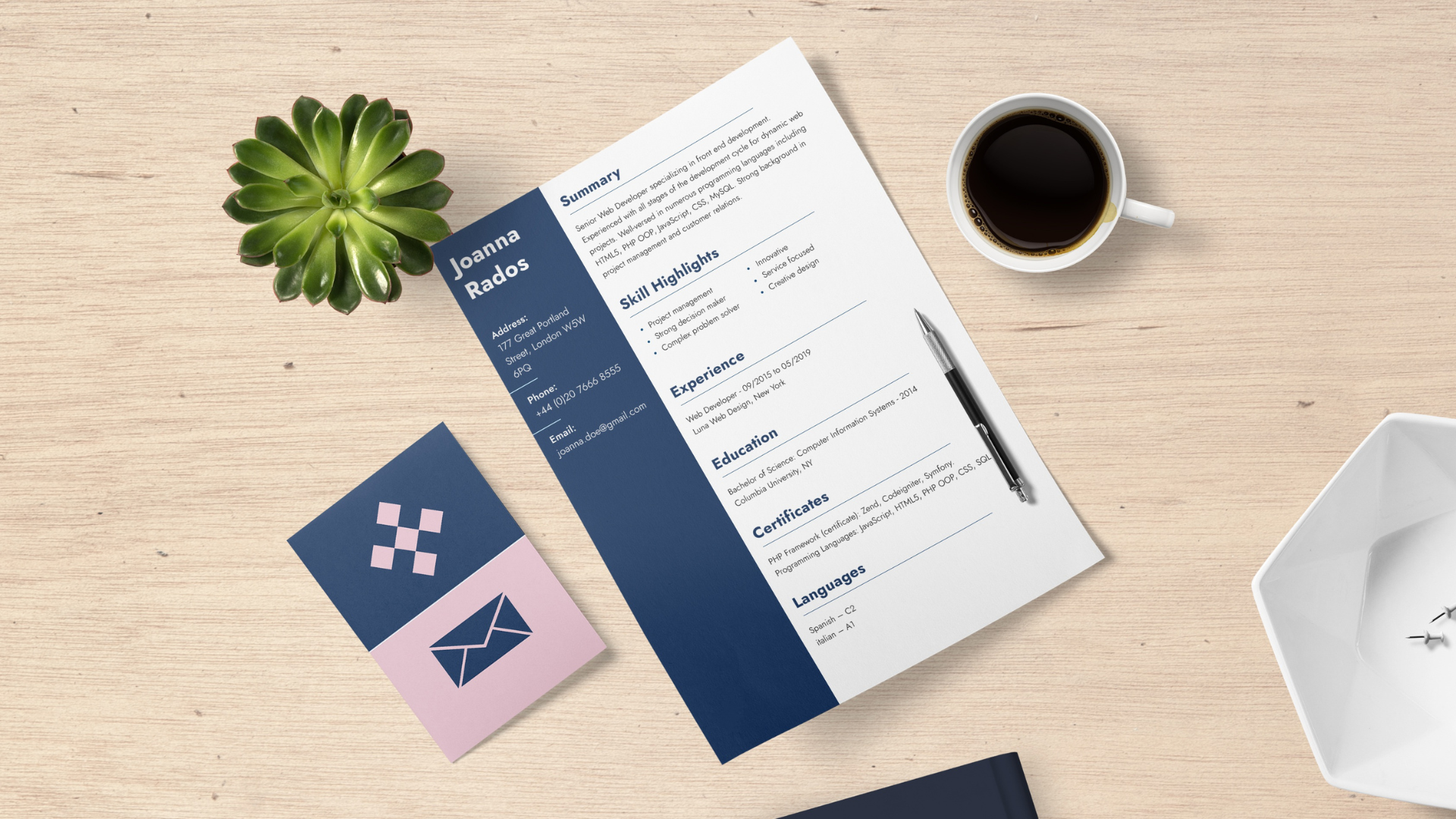Recent Articles

By Maddy Laing
•
15 Apr, 2024
In today's dynamic digital landscape, remote work has evolved from a novelty to a necessity, transforming the way teams collaborate and achieve goals. As the paradigm of work continues to shift, leaders must adapt their management strategies to ensure optimal team performance and cohesion. Effective leadership in remote settings requires a nuanced approach that prioritizes clear communication, trust, accountability, and team building

By Chloe Bowditch
•
08 Apr, 2024
Recently, people2people Sydney hosted its first HR roundtable for 2024 and delivered a masterclass on a topic that is currently top of mind for HR leaders in the workforce: Psychological safety and minimizing psychosocial risk in the workplace. With 10 HR leaders in attendance from a range of industry sectors, the breakfast event was led by Culture and Leadership Strategist, Karlie Webster at our George Street office, and was tailored to senior HR professionals with varying levels of knowledge across psychological safety and psychosocial risk. Firstly, let’s understand what psychological safety looks like within the workplace There is often a common misconception around this topic that leads managers to believe that psychological safety simply means employees “being nice to one other”, and this is incorrect. Put simply, a psychologically safe workplace allows all employees to feel comfortable talking about what they are experiencing in their role and at work, without the possibility of it having an impact on their job security. It also gives permission for employees to feel comfortable being completely themselves in all professional situations, and voicing when something doesn’t feel like its working for them. What is psychosocial risk and how is it associated with psychological safety? Psychosocial risk, or psychosocial hazard, is any occupational hazard this has an impact on an employee’s mental or psychological wellbeing. This could include stress, anxiety, feeling burnt out or any other experience that could be impacting an employee’s engagement or productivity. When there is a lack of focus around psychological safety in the workplace, and most importantly, from leadership, the possibility of these issues being present becomes much more likely, and therefore puts an organisation at much greater risk for psychosocial complaints and claims to be raised with Human Resources. Let’s discuss how to recognise the signs of a psychologically unsafe team - One of the quickest ways to recognize where your team currently sits within this area, is to simply spend some time observing the everyday behaviours of your employees - Psychological unsafe behaviours look like: · Ask questions from a place of fear or judgement · Exhibiting erratic and unpredictable actions · Holding a narrow focus when discussing an issue · Coming to leaders with problems and very little solutions · Getting defensive when being provided with feedback Psychologically safe behaviours look like: · Asking questions from a place of genuine curiosity · Calm and focussed actions · Can access new ideas easily during team brainstorm sessions · Coming to leaders with solutions when experiencing a problem · Open to feedback and learning Actions leaders can take to build psychological safety and minimize psychosocial risk - As with any change or new strategy being implemented, they must begin at leadership level, and then be trickled down to middle-management, and then the wider team from there. A company's culture can tell us a lot about the behaviour of leaders and their effectiveness in creating psychological safety. Below are five practical actions that leaders can use to build psychological safety in the workplace: 1. Communicate effectively. Ensure people can freely give and receive feedback, not just with you but across the team. Encourage active listening to understand the facts, as well as thoughts, feelings and values. 2. Role model curiosity by asking curious questions and demonstrating the behaviour that you want to see from the team. 3. Frame problems and mistakes as opportunities to learn, and coach people to solve problems themselves. 4. As the leader, acknowledge that you're not perfect. Invite others to ask you curious questions and spot the things you might have missed. 5. Encourage respectful and constructive debate. Not all conflict is bad. Support the team to work together and resolve conflict productively.

By P2P Education
•
24 Mar, 2024
In the grand tapestry of education, early childhood education forms the vital groundwork upon which the entire structure of learning is built. It's not merely about teaching ABCs and 123s; it's about nurturing young minds, fostering curiosity, and laying the foundation for a lifetime of academic and personal success. The significance of early childhood education cannot be overstated, as it plays a pivotal role in shaping the trajectory of a child's life.

By Shavneel Narayan
•
20 Mar, 2024
In today's rapidly evolving job market, mastering the art of interviewing has become more crucial than ever. With the rise of remote work and digital communication, job interviews are increasingly conducted in virtual settings. However, traditional face-to-face interviews still hold significance in many industries. To navigate this shift seamlessly, it's essential for job seekers to be proficient in both virtual and in-person interview techniques.
Employer Insights

By Maddy Laing
•
15 Apr, 2024
In today's dynamic digital landscape, remote work has evolved from a novelty to a necessity, transforming the way teams collaborate and achieve goals. As the paradigm of work continues to shift, leaders must adapt their management strategies to ensure optimal team performance and cohesion. Effective leadership in remote settings requires a nuanced approach that prioritizes clear communication, trust, accountability, and team building

By Kim Padmore
•
10 Jan, 2024
In an era marked by rapid technological advancements and the relentless march of automation, the workforce landscape is constantly evolving. Employees who once possessed the necessary skills and expertise to excel in their roles may suddenly find themselves facing obsolescence. To thrive in the age of automation, continuous learning and skill development are no longer optional but imperative.

By Arabella Favetti
•
01 Oct, 2023
Onboarding is a critical process for integrating new employees into your organization. Employers can make several mistakes during this process that can hinder the employee's integration and productivity. We recently sent out a poll asking job seekers what they consider to be a bad onboarding experience when joining a new company. But what are the top 3 mistakes employers often make when onboarding new staff?

By Kirsty Henegan
•
18 Jun, 2023
Over the last year, Australia and New Zealand’s market has been unpredictable and candidate short. As a result of this, there has been a shift for employers having a big focus on talent attraction and retention. It is essential to ensure organisations continue to perform in the current market and remain in a strong position to navigate high market volatility.
Working Holiday

By Jason Mueller
•
17 Sep, 2023
Australia, known for its stunning landscapes, diverse wildlife, and vibrant cities, has long been an attractive destination for individuals seeking new opportunities. Many people consider relocating to Australia for work, whether it's a temporary assignment or a permanent move.

By people2people
•
22 Mar, 2023
Are you considering taking a break from the daily grind and living abroad for a while? If so, 2023 could be the perfect year to embark on a working holiday in either Australia or New Zealand. A working holiday allows you to combine the experience of exploring a new country and culture with the opportunity to gain valuable work experience. This blog post will discuss the many benefits of working holidays in Australia or New Zealand in 2023.

By Jakobb Mills
•
07 Feb, 2022
Planning for your working holiday is all about knowing what to expect. Whether you have a job lined up or plan on picking up work along the way, there are a few essential tips that every Working Holiday Maker should know. Before you board that plane, be sure to review these ten things you should know before travelling to Australia in 2022 as a Working Holidaymaker
Job Seeker Advice

By Will Hillgrove
•
13 Mar, 2024
As the workforce landscape continues to evolve, businesses must adjust their recruitment strategies to attract and retain Generation Z, the newest entrants to the professional arena. Born between the mid-1990s and early 2010s, Generation Z brings with them a unique set of values, preferences, and expectations. To effectively tap into this pool of talent, organisations must embrace innovative approaches tailored to this demographic's characteristics.

By Sharna Bryant
•
17 Jan, 2024
In the competitive landscape of today's job market, aspiring professionals often find themselves navigating through a sea of opportunities, all while striving to stand out among the crowd. This challenge becomes even more pronounced when targeting senior-level roles, where expectations are high, and competition is fierce. One key strategy to rise above the competition is the art of tailoring your CV to align seamlessly with the requirements and expectations of senior-level positions.

By Rachel Adams
•
11 Jun, 2023
On a recent people2people Australia Live Employment and Job Market Update, Group Managing Director Mark Smith was joined by Recruitment Expert Rachel Adams to discuss the hot topic of salary increases, and how to approach the dreaded conversation of asking for a pay rise.

By Jessica Bales
•
21 May, 2023
As of 2023, the job market in Australia is expected to be moderately competitive, with some sectors experiencing growth while others may see a decline. Along with the slower pace, and unpredictability of the market, some job seekers might be unsure if a permanent job is the right move for their career.
Explore our blogs

By Maddy Laing
•
15 Apr, 2024
In today's dynamic digital landscape, remote work has evolved from a novelty to a necessity, transforming the way teams collaborate and achieve goals. As the paradigm of work continues to shift, leaders must adapt their management strategies to ensure optimal team performance and cohesion. Effective leadership in remote settings requires a nuanced approach that prioritizes clear communication, trust, accountability, and team building

By Chloe Bowditch
•
08 Apr, 2024
Recently, people2people Sydney hosted its first HR roundtable for 2024 and delivered a masterclass on a topic that is currently top of mind for HR leaders in the workforce: Psychological safety and minimizing psychosocial risk in the workplace. With 10 HR leaders in attendance from a range of industry sectors, the breakfast event was led by Culture and Leadership Strategist, Karlie Webster at our George Street office, and was tailored to senior HR professionals with varying levels of knowledge across psychological safety and psychosocial risk. Firstly, let’s understand what psychological safety looks like within the workplace There is often a common misconception around this topic that leads managers to believe that psychological safety simply means employees “being nice to one other”, and this is incorrect. Put simply, a psychologically safe workplace allows all employees to feel comfortable talking about what they are experiencing in their role and at work, without the possibility of it having an impact on their job security. It also gives permission for employees to feel comfortable being completely themselves in all professional situations, and voicing when something doesn’t feel like its working for them. What is psychosocial risk and how is it associated with psychological safety? Psychosocial risk, or psychosocial hazard, is any occupational hazard this has an impact on an employee’s mental or psychological wellbeing. This could include stress, anxiety, feeling burnt out or any other experience that could be impacting an employee’s engagement or productivity. When there is a lack of focus around psychological safety in the workplace, and most importantly, from leadership, the possibility of these issues being present becomes much more likely, and therefore puts an organisation at much greater risk for psychosocial complaints and claims to be raised with Human Resources. Let’s discuss how to recognise the signs of a psychologically unsafe team - One of the quickest ways to recognize where your team currently sits within this area, is to simply spend some time observing the everyday behaviours of your employees - Psychological unsafe behaviours look like: · Ask questions from a place of fear or judgement · Exhibiting erratic and unpredictable actions · Holding a narrow focus when discussing an issue · Coming to leaders with problems and very little solutions · Getting defensive when being provided with feedback Psychologically safe behaviours look like: · Asking questions from a place of genuine curiosity · Calm and focussed actions · Can access new ideas easily during team brainstorm sessions · Coming to leaders with solutions when experiencing a problem · Open to feedback and learning Actions leaders can take to build psychological safety and minimize psychosocial risk - As with any change or new strategy being implemented, they must begin at leadership level, and then be trickled down to middle-management, and then the wider team from there. A company's culture can tell us a lot about the behaviour of leaders and their effectiveness in creating psychological safety. Below are five practical actions that leaders can use to build psychological safety in the workplace: 1. Communicate effectively. Ensure people can freely give and receive feedback, not just with you but across the team. Encourage active listening to understand the facts, as well as thoughts, feelings and values. 2. Role model curiosity by asking curious questions and demonstrating the behaviour that you want to see from the team. 3. Frame problems and mistakes as opportunities to learn, and coach people to solve problems themselves. 4. As the leader, acknowledge that you're not perfect. Invite others to ask you curious questions and spot the things you might have missed. 5. Encourage respectful and constructive debate. Not all conflict is bad. Support the team to work together and resolve conflict productively.

By P2P Education
•
24 Mar, 2024
In the grand tapestry of education, early childhood education forms the vital groundwork upon which the entire structure of learning is built. It's not merely about teaching ABCs and 123s; it's about nurturing young minds, fostering curiosity, and laying the foundation for a lifetime of academic and personal success. The significance of early childhood education cannot be overstated, as it plays a pivotal role in shaping the trajectory of a child's life.

By Shavneel Narayan
•
20 Mar, 2024
In today's rapidly evolving job market, mastering the art of interviewing has become more crucial than ever. With the rise of remote work and digital communication, job interviews are increasingly conducted in virtual settings. However, traditional face-to-face interviews still hold significance in many industries. To navigate this shift seamlessly, it's essential for job seekers to be proficient in both virtual and in-person interview techniques.

By P2P Education
•
17 Mar, 2024
The role of educators extends far beyond the classroom walls. They are the architects of young minds, shaping the foundation upon which future learning and development will be built. In such a pivotal role, continuous growth and learning are not just encouraged but essential. Professional development for early childhood educators is not merely a box to check; it's a pathway to excellence, enriching both their practice and the lives of the children they serve.

By Will Hillgrove
•
13 Mar, 2024
As the workforce landscape continues to evolve, businesses must adjust their recruitment strategies to attract and retain Generation Z, the newest entrants to the professional arena. Born between the mid-1990s and early 2010s, Generation Z brings with them a unique set of values, preferences, and expectations. To effectively tap into this pool of talent, organisations must embrace innovative approaches tailored to this demographic's characteristics.

By P2P Education
•
10 Mar, 2024
In the world of early childhood education, the impact of educators cannot be overstated. They are the heart and soul of any childcare center, shaping the experiences and development of young learners. However, finding the perfect match between educators and your center's philosophy can be a daunting task. This is where people2people education can play a vital role.

By Hannah Scanlan
•
04 Mar, 2024
In the competitive landscape of modern business, companies are increasingly recognising the pivotal role that a strong organisational culture plays in attracting and retaining top-tier talent. A vibrant company culture not only fosters employee satisfaction and loyalty but also acts as a magnet for prospective candidates seeking a workplace where they can thrive. Let's delve into some effective strategies for building and sustaining a compelling company culture.

By Renagi Ingram
•
28 Feb, 2024
In today's fast-paced job market, staying competitive and adaptable is crucial for long-term career success. Technological advancements and shifting industry demands mean that constantly upgrading your skills is essential. Upskilling and reskilling are key strategies to invest in your career development and secure future opportunities.

By Marissa Varudo
•
25 Feb, 2024
In the midst of the ever-evolving economic landscape characterized by uncertainty and volatility, individuals contemplating stepping into or rejoining the job market often grapple with the question: "Is this the opportune moment?". As the new year unfolds, while many focus on personal resolutions, it also presents an auspicious time to ignite one's professional aspirations, particularly for those pondering a job transition or entry into the workforce.

By Jakobb Mills
•
13 Feb, 2024
In today's digital age, cultivating a strong personal brand has become more crucial than ever, especially on professional networking platforms like LinkedIn. With over 774 million users worldwide, LinkedIn offers unparalleled opportunities for individuals to showcase their expertise, build meaningful connections, and advance their careers.

By Bianca Luck
•
12 Feb, 2024
As the battle to bring Australians back to the workplace intensifies, workers are asking for more than just financial incentives. Recent people2people research reveals that Australian employees are seeking wage increases of up to 10 percent as compensation for giving up their work-from-home arrangements.

By Sharna Bryant
•
17 Jan, 2024
In the competitive landscape of today's job market, aspiring professionals often find themselves navigating through a sea of opportunities, all while striving to stand out among the crowd. This challenge becomes even more pronounced when targeting senior-level roles, where expectations are high, and competition is fierce. One key strategy to rise above the competition is the art of tailoring your CV to align seamlessly with the requirements and expectations of senior-level positions.

By Elizabeth Punshon
•
17 Jan, 2024
In today’s ever-changing business landscape, economic uncertainty is a constant factor. It can create significant challenges for organisations striving to retain their top talent. Employees may start to feel uncertain about their job security, leading to the potential loss of valuable team members.

By Hayley Coghill
•
17 Jan, 2024
As the calendar turns to a new year, it's a time for reflection and resolutions, and for some, that might mean parting ways with their current job. Resigning from a position is a significant step that demands thoughtful consideration and a well-executed plan. Let's delve into some key topics and advice to ensure you resign from your job the right way as you embrace the possibilities of the upcoming year.

By Leanne Lazarus
•
15 Jan, 2024
In today’s rapidly evolving business landscape, organisations are recognising the critical importance of diversity and inclusion in the hiring process. A diverse and inclusive workforce brings a multitude of benefits to the table, such as improved innovation, problem-solving, and overall business performance.

By Kim Padmore
•
10 Jan, 2024
In an era marked by rapid technological advancements and the relentless march of automation, the workforce landscape is constantly evolving. Employees who once possessed the necessary skills and expertise to excel in their roles may suddenly find themselves facing obsolescence. To thrive in the age of automation, continuous learning and skill development are no longer optional but imperative.

By Krystal Spittal
•
08 Jan, 2024
In the current dynamic and unpredictable business landscape, effective succession planning has become more essential than ever. The ability to prepare for leadership transitions can mean the difference between an organisation’s sustained success and potential disruptions.

By Peta Seaman
•
03 Jan, 2024
In today’s fast-paced and demanding work environment, the well-being of employees has become a critical concern for organisations. The stressors of modern work can lead to burnout, impacting both the individual and the company’s productivity. To address these issues, organisations are increasingly implementing strategies to promote employee well-being and prevent burnout.

By Suhini Wijaysubghe
•
01 Jan, 2024
Performance reviews have long been a mainstay in the workplace, providing a structured way for employers to assess employees’ contributions and offer feedback. However, the traditional annual or semi-annual performance review is undergoing a transformation, with a growing emphasis on continuous feedback and data-driven assessments. This shift reflects a changing work environment where agility, adaptability, and employee development have become paramount.



